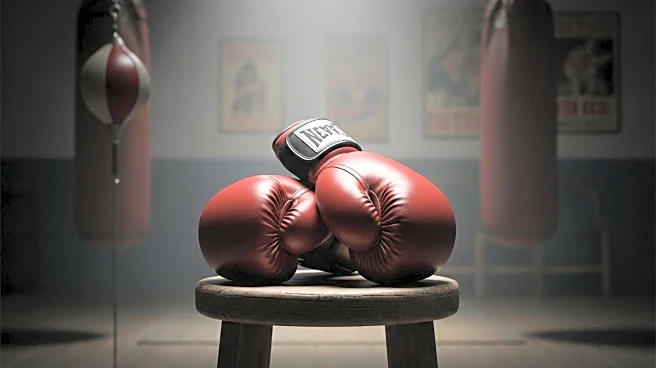What's Happening?
Ricky 'Hitman' Hatton, a former world boxing champion, has died at the age of 46. Hatton, known for his aggressive fighting style and significant achievements in the light welterweight and welterweight divisions, was found dead in his home in Greater Manchester. The police have stated that there are no suspicious circumstances surrounding his death. Hatton was preparing for a return to the ring in December for a boxing event in Dubai. His career was marked by a series of notable victories, including a win over Kostya Tszyu in 2005, and he retired with a record of 45 wins and 3 losses. Hatton had also been open about his struggles with mental health, which he faced after retiring from boxing.
Why It's Important?
Hatton's death is a significant loss to the boxing world, where he was celebrated not only for his achievements in the ring but also for his candidness about mental health issues. His passing highlights the ongoing conversation about mental health in sports, particularly in high-pressure environments like professional boxing. Hatton's influence extended beyond his fighting career, as he worked as a trainer and manager, contributing to the development of other fighters. His planned comeback was highly anticipated, and his death leaves a void in the sport and among his fans.
What's Next?
The boxing community is expected to pay tribute to Hatton, with potential memorial events and dedications in upcoming matches. His death may also prompt further discussions and initiatives around mental health support for athletes. The impact of his passing will likely be felt in the boxing world for some time, as fans and fellow athletes remember his contributions to the sport.
Beyond the Headlines
Hatton's life and career underscore the challenges athletes face with mental health, especially after retirement. His openness about his struggles may inspire others to seek help and speak out, potentially leading to increased support and resources for mental health in sports. Hatton's legacy as a fighter and advocate for mental health will continue to influence the boxing community and beyond.











